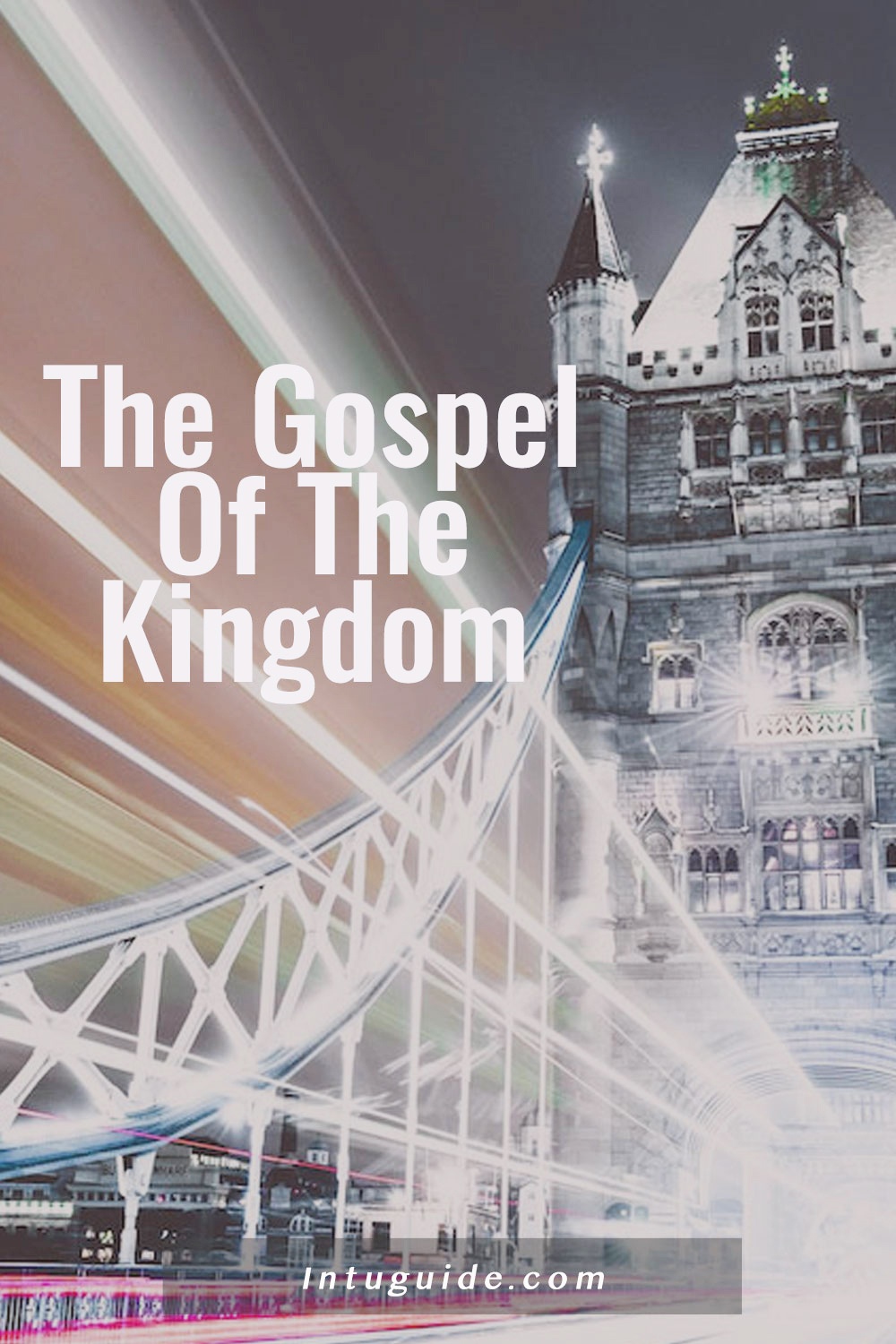What is the Heavenly Kingdom and what does it look like? Jesus was asked this question by his followers a lot. He introduced the idea of the Kingdom with correlation to the spiritual fatherhood of God and the brotherhood of men.
This concept was designed to liberate people from the bondage of hatred and fear. It was able to enrich human life by filling it with spiritual liberty and courage. The Gospel of the Kingdom was made to set men free and inspire hope for eternal life.
The Gospel was designed to bring confidence and true consolidation for all people of various nationalities and economic statuses. It introduced a new standard of moral values for human conduct, such as spiritual attainment, as the true goal of living. Life in Heavenly realms was a reward for righteous living on Earth.
Jesus often described The Kingdom of God as the “Kingdom of Life” and frequently called it the Kingdom of God within yourself. As his message about family fellowship with God the Father was hard to grasp, he used parallel stories to interpret his Gospel message to others.
The heavenly Father and the liberated sons of God joined the heavenly family and entered into joyful and voluntary brotherly service for their fellow men with intelligent worship of God the Father.
Jesus tried to use many terms to describe the Kingdom, but often it was not successful. He used parables to explain what the kingdom, king, and subjects were. He often used words such as children of God, a family of God, a brotherhood of men, friends of God, Father’s fold, Father’s service, Father’s will, a fellowship of faithful believers, and liberated sons of God.
Unfortunately, it was hard for his apostles to grasp the idea of the Spiritual Kingdom because they were waiting for a military Jewish Messiah who would take over the king’s throne and establish the kingdom of power and glory over the land.
The Elements Of The Gospel
The gospel of the kingdom delivers the Heavenly Father’s plan for His children to receive salvation. This Gospel is called the Gospel of Jesus Christ because of Jesus’ Atonement, which is central to this plan. According to this plan, our Heavenly Father sent His Son, Jesus Christ, into the world as a perfect example of how to live a meaningful and productive life. Through the grace and mercy of Jesus Christ, people can become clean from sin and enjoy the peace of wisdom.
In earlier centuries, animals were sacrificed for offerings. The offerings were practiced under the Law, as a reminder of the sins (Hebrews 10:3–4). The gospel describes Jesus’ death on the cross as an offering to fulfill the righteous requirement of the Old Testament Law (Romans 8:3–4; Hebrews 10:5–10).
When Christ willingly went to the Calvary place (place of a skull), that symbol became a reality for all believers (Hebrews 10:11–18), completing the work of atonement. Jesus’s life and work are not a doctrine or teaching, but a living divine presence in the souls of the believers:
I am the way, the truth, and the life. No one comes to the Father except through me. (John 14:6).
The elements of the Gospel are the good news described by Paul in 1 Corinthians 15:3–6. Christ died for our sins, then he was buried and raised on the third day. Then, he appeared to 12 apostles and more than five hundred people at the same time. Therefore, Paul is one of the hundred eyewitnesses who received the divine message, not a man-made doctrine, and then passed it on to others.
Jesus and the apostles have traveled a lot and visited many places. They preached the crucifixion and resurrection of Christ everywhere they went. The apostles not only theorized about the Kingdom but also presented an eyewitness account and proof about Christ’s death for our sins (proved by his burial), and his resurrection on the third day (as seen by the eyewitnesses), thus presenting the salvation of mankind through Christ.
But why is the Gospel good news?
To understand it, we must first take a look at the bad news. During the time of Moses, various Old Testament Laws were given to the inhabitants of Israel (Deuteronomy 5:1). The Law was a measuring unit, and sin was anything that fell short of “perfect” according to that standard.
The Old Testament Law requirement was so detailed and strict that no human being could possibly follow it fully, in person or spirit. In terms of good and evil, people are all in the same spiritual boat and tend to sin frequently. The punishment for sin is eventually “death” – spiritual separation from God, the source of life (Romans 3:23).
Heaven is God’s dwelling place and the realm of light and life. To live there permanently, sin must be removed or paid off as no sin exists in these realms. According to the Old Testament Law, cleansing from sin can only happen through the blood sacrifice of an innocent life (Hebrews 9:22). To reject the Gospel is to embrace the bad news.
Condemnation before God is a lack of faith in the Son of God, His only provision for salvation.
He has given us a new birth of a living hope through the resurrection of Jesus Christ from the dead, and into an inheritance that can never perish, spoil or fade. This inheritance is kept in heaven for you. (1 Peter 1:3–4).
God did not send his Son into the world to punish the world, but to save the world through him. Anybody who believes in him is not condemned, but those who do not believe will be condemned because they have not believed in the name of God’s one and only Son (John 3:17–18).
Unity In The Gospel

Image by ThavrinThan from Pixabay
The Christian teachings are based on love and respect toward others despite the differences in race, gender, privilege, social, political, and economic background (John 13:34-35; Gal. 3:28-29), and ask to be of one mind wherever possible (John 17:20-21; Phil. 2:2; Rom. 14:1-15:13).
Division among Christians delays our witness in the world as we desire greater mutual understanding and truth-speaking in love. As keepers of God’s truth, we cannot embrace any form of doctrinal indifferentism, pluralism, or relativism by which God’s truth is sacrificed for a sense of false peace.
Jesus taught his disciples that Father sent him into the world to proclaim this salvation of sonship to all men. Salvation is a gift from God, but those who are born of the Spirit will immediately begin to bring forth the fruits of the Spirit in loving service to their fellow men.
The Divine Spirit works within the Spirit-born and God-knowing mortals and that includes loving service, enlightened honesty, unselfish devotion, sincere fairness, undying hope, confiding trust, forgiving tolerance, courageous loyalty, unfailing goodness, and enduring peace.
If professed believers do not bear these fruits of the Divine Spirit in their lives, that means that the Spirit of Truth is not in them and they are useless branches on the living vine that will be taken away.
The believers should yield the fruits of the Spirit while progressing heavenward in the Kingdom of God. They may enter the Kingdom as a child, but the Father requires that they grow up, by grace, into the full stature of spiritual adulthood.
The believers should create the Kingdom of God in this world. People must have the supreme desire to do the will of God, have good ethical and moral conduct, and channel unconditional love: “Love the Lord your God with all your mind and soul and your neighbor as yourself.”
People should have faith, be free from prejudice and preconception, be open-minded with a desire to learn like an unspoiled child and receive the devotion of sonship as a gift.
Truth seekers should be thirsty for righteousness with the desire to find God. Jesus taught that sin is not a child of a defective nature but rather the offspring of an over-knowing mind dominated by an unsubmissive will.
When Jesus was providing healing services to the public, he always knew how much faith the person had. If the person believed in miracles, he was healed immediately. When believers hosted the presence of the Lord, something was happening around them that carried the actual atmosphere of Heaven.
God has a plan for everybody. Our divine assignment is to bring the reality of His world into our reality. When we practice living it, it becomes our transforming power. God wants to see us as people who have an understanding of the will of God.
Starting a New Life
Christ who suffered on behalf of mankind took the penalty of mankind’s sin, which is death and separation from God. He did it to satisfy the righteous demands of the holiness and justice of God, his Father.
Jesus was a perfect sacrifice – he died on the cross and rose again on the third day conquering death. It was done for others to repent of their sins, trust him rather than their merit, turn to God, and live for eternity with their Creator.
You can start a new life and follow the Gospel of truth by:
- Developing faith in Jesus Christ
- Repenting
- Being baptized and receiving the Holy Spirit
- Enduring to the end
According to the scriptures, Jesus is a keeper of the keys that were lost in the Garden. He received all authority from God to rule over Heaven and Earth. Jesus also received full authority over all living creatures in his realm. He is the one who is going to give eternal life to all who believe in God.
According to the first principles of the priesthood, an ordinance is a sacred, formal act performed by the authority of the priesthood, which is done by entering into a covenant with our Heavenly Father.
The first ordinance of the gospel of the kingdom is baptism and receiving the Holy Ghost following faith in Jesus Christ and repentance. After learning and following the first principles and ordinances of the Gospel, they should seek to follow Christ’s example throughout the remainder of their life. This continued faithfulness is called “enduring to the end.”
*As an Amazon Associate, I earn from qualifying purchases.



